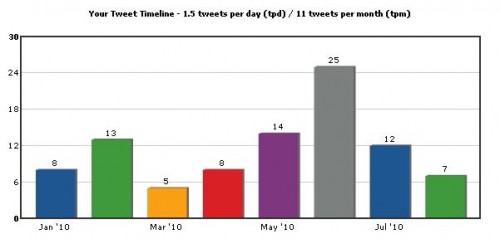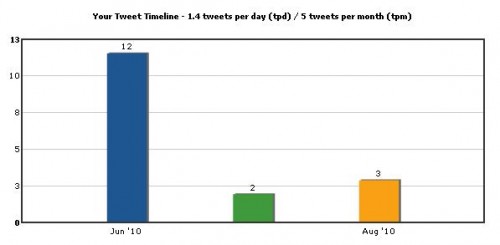Google, Microsoft Africa blogs relatively dormant
(9/21/10 Update: @googleafrica has picked up its pace and tweeted 20 times in the past month. Furthermore, the Google Africa Blog has seen 7 posts. Very nice!)
Despite the resources at their disposal, neither the Google Africa or Microsoft Africa blogs or Twitter accounts post frequent updates. In fact, the Google Africa Blog, although contributing multiple posts during the month of June, has only made three posts in the past 6 weeks. Somehow, though, over 3,000 individuals have subscribed to the site’s RSS feed. Similarly, the Microsoft on the Issues Africa blog struggles to post one entry per week. (More interesting, perhaps, is the Microsoft blog’s lack of a <title> tag, but that’s a different story.)
Furthermore, the corresponding Twitter accounts pose even more questions as to how these corporations allocate their manpower:
- @googleafrica has only tweeted 19 times since July 1st and many of these updates are duplicates. Yet, somehow, Google Africa’s Twitter account has 2,700+ followers. Bottom line: the world is eager to learn more about Google’s participation and goals for Africa.
- @MicrosoftAfrica, in comparison, has only existed since June 14th. In that time, however, the account has only produced 19 tweets. And there were no updates from July 5th – August 3rd. More disappointing, perhaps, is that Microsoft Africa’s Twitter account only has 35 followers (and follows 47). This statistic is surprisingly considering the vast majority of African computer users currently rely on Microsoft products and licenses.
All things considered, the issue lies not with the subject matter, but with the sheer volume of information relating to these corporations’ efforts to promote ICT progress in Africa. In general, the broader themes of corporate involvement focus on language/accessibility and web development. Google’s and Microsoft’s blogs contain posts by a variety of employees, so one would think it reasonable to at least maintain quota of one post per month per employee, for example. The audience is eager to learn more – it’s quite amazing that Google Africa’s blog has over 3,000 RSS subscribers when there are only a handful of monthly entries. Microsoft Africa, on the other hand, should consider growing its online audience via social media, especially considering the grassroots push for more open source software on the continent.














 Twitter
Twitter Facebook
Facebook Pinterest
Pinterest